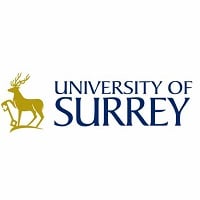Physics
Position Details (PhD Program)
The Physics programme at the University of Surrey provides opportunities for experimental, theoretical and computational research in both fundamental and applied physics, in subjects such as nuclear and radiation physics, astrophysics, photonics, soft matter, quantum technologies and medical physics.
At Surrey you’ll have the opportunity to collaborate with scientists around the world and take advantage of our strategic partnerships with organisations such as the National Physical Laboratory and the Royal Surrey County Hospital.
Career opportunities
It normally takes between three and four years of full-time study to complete the PhD in Physics .You’ll be assigned two supervisors, both based at the University of Surrey . Your principal supervisor will be an expert in your area of research and will guide you through your PhD. Together, your supervisors will help you define the objectives and scope of your research, and help you learn the experimental, theoretical and computing skills that you need to complete your research.As a doctoral student in the School of Mathematics and Physics, you’ll be assigned to a research group with a team of academics, postdoctoral researchers, guest scientists and fellows. Each group has its own seminar programme, giving you the opportunity to learn from colleagues and from guest scientists.You’ll have regular opportunities to meet other PhD students, academics and staff at our informal postgraduate research forum meetings, and to get involved in organising social or other events.In addition to the award of a PhD, as a doctoral student you’ll be able to join the Institute of Physics as an Associate Member, and you’ll be entitled to apply for full membership after three years of postgraduate study.
Research themes
- Multi-scale numerical simulations
- Stellar clusters
- Galaxy formation
- Supermassive black holes
- The hunt for dark matter
- Nuclear and radiation physics
- Ab initio nuclear structure
- Reactions for stellar nucleosynthesis
- Few body methods for nuclear structure and reactions
- Nuclear matter and neutron stars
- Superheavy nuclei and the creation of new elements
- Resonances and vibrational modes of nuclei.



 University of Surrey
University of Surrey